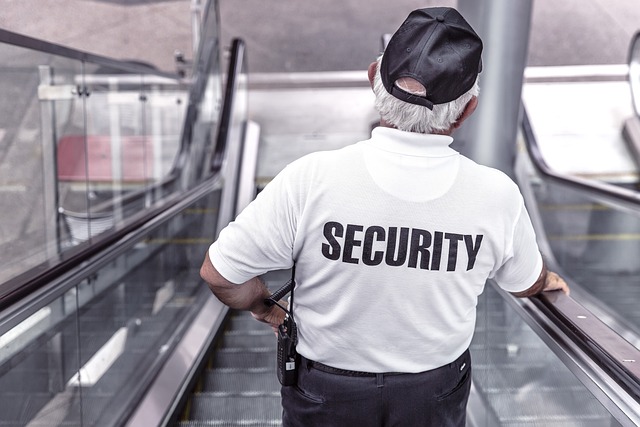Home security systems play a critical role in emergency preparedness by instantly alerting homeowners and monitoring centers of breaches, fires, carbon monoxide leaks, or medical emergencies. These systems leverage advanced technologies like motion detectors, surveillance cameras, and real-time data transmission to provide precise threat assessments and timely notifications to authorities. When interconnected with smart home technology, they offer remote monitoring, supplying emergency responders with essential situational information upon arrival, which enhances response coordination and improves community safety outcomes. Integrating these security systems with local emergency services ensures faster response times and more effective aid delivery. Homeowners can customize their systems to trigger alerts for specific incidents, and regular system checks alongside verification service enrollment help maintain reliability and minimize false alarms. The synergy between home security systems and local first responders signifies a proactive approach to safeguarding homes, offering enhanced protection and peace of mind through coordinated response efforts.
When time is of the essence and danger looms, home security systems play a pivotal role in safeguarding lives and properties. This article delves into the critical intersection of home security measures and emergency response services, highlighting how robust systems can be the first line of defense in urgent situations. We will explore the essential features that define effective home security and discuss strategies for integrating these systems with local response teams to enhance overall safety. Join us as we navigate the intricacies of home security’s role in the broader context of emergency preparedness, ensuring readers are well-equipped with knowledge to protect what matters most.
- Understanding the Role of Home Security in Emergency Response Services
- Key Features of Effective Home Security Systems for Urgent Situations
- How to Integrate Your Home Security with Local Emergency Response Teams for Enhanced Safety
Understanding the Role of Home Security in Emergency Response Services

Home security systems play a pivotal role in the broader context of emergency response services. These systems act as the first line of defense, providing immediate notification of an incident at a residence. When a security system detects an intrusion, fire, carbon monoxide leak, or medical emergency, it can automatically alert both home occupants and monitoring centers. This rapid communication enables quicker responses from emergency services, potentially reducing response times and mitigating damage or harm. The integration of modern technology, such as motion sensors, surveillance cameras, and real-time data transmission, enhances the capabilities of home security systems to accurately assess threats and alert authorities when necessary. Additionally, advanced systems can be connected to smart home technology, allowing for remote monitoring and control, which further supports emergency response efforts by providing first responders with additional context about the situation upon arrival. By prioritizing home security as a critical component of emergency preparedness, communities can significantly improve their safety and the effectiveness of emergency response services.
Key Features of Effective Home Security Systems for Urgent Situations

Home security systems play a pivotal role in safeguarding residences against urgent situations, providing a line of defense that can deter intruders and alert homeowners to potential threats. A key feature of effective home security systems is real-time monitoring, which allows for immediate response to any unusual activity detected by motion sensors or door/window contacts. This capability ensures that even when homeowners are not physically present, their property remains under watchful eyes capable of transmitting alerts to both homeowners and designated emergency services.
Moreover, systems equipped with surveillance cameras facilitate visual verification, enabling a rapid assessment of the situation by security personnel or law enforcement. Advanced systems also incorporate environmental sensors that detect hazards such as smoke, carbon monoxide, floods, and extreme temperatures, thereby providing an additional layer of protection against natural disasters and accidents. Features like two-way audio enable direct communication with occupants or intruders, allowing for real-time decision-making and guidance from emergency responders. Integration with smart home technology further enhances security by automating lights, locks, and alarms, creating a deterrent to would-be perpetrators and providing homeowners with greater control over their property’s security even when away from home.
How to Integrate Your Home Security with Local Emergency Response Teams for Enhanced Safety

Integrating your home security system with local emergency response teams can significantly enhance the safety and well-being of your household. Modern home security systems often come equipped with features that allow for seamless communication with authorities in the event of an incident. To initiate this integration, it’s crucial to ensure that your system is compatible with the local emergency response protocols. This typically involves selecting a security provider that has established partnerships with local first responders. By doing so, alerts triggered by your security system can be automatically dispatched to the appropriate emergency services, reducing response times and potentially saving lives.
Furthermore, users can often customize the types of incidents that will trigger an alert to the authorities, whether it’s a fire, break-in, or medical emergency. It’s advisable to regularly test your system and confirm that it is connected to the correct local emergency numbers. Additionally, consider enrolling in community programs that offer verification services for alarms, which can increase the reliability of your alert and ensure that first responders are dispatched only when necessary, thus avoiding false alarms. This proactive approach to home security integration with local emergency response teams can provide peace of mind and a safer living environment.
In conclusion, home security systems play a pivotal role in emergency response services, offering a first line of defense that can significantly improve safety and outcomes in urgent situations. By understanding the critical functions these systems perform and integrating them with local emergency response teams, homeowners enhance their protection. Key features of robust home security solutions are essential for timely alerts and rapid intervention. As such, investing in a well-designed home security system is not just a precautionary measure but an integral part of a comprehensive safety strategy. Homeowners should prioritize these systems to ensure they are prepared for any emergency, fostering peace of mind and a safer living environment.
